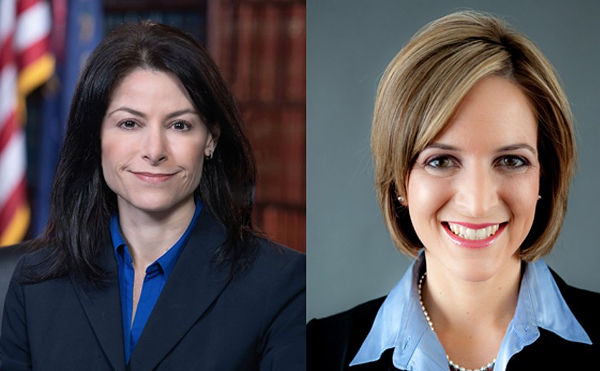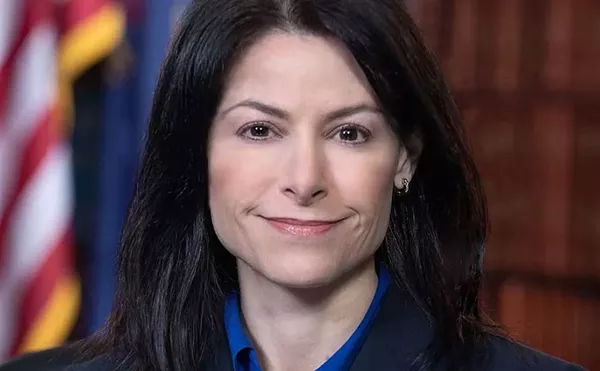
Audio By Carbonatix
[
{
"name": "GPT - Leaderboard - Inline - Content",
"component": "35519556",
"insertPoint": "5th",
"startingPoint": "3",
"requiredCountToDisplay": "3",
"maxInsertions": 100,
"adList": [
{
"adPreset": "LeaderboardInline"
}
]
}
]
I am writing to thank you for your article on Rabih Haddad. It is so important that we have a lens of humanity during times of crisis. That is the only way we, as human beings, will solve our differences. I hope and pray that we see more and more articles and news stories like yours. —Sarah Sayeed, Ph.D., New York, N.Y.
Unfair targets
I was deeply moved by the story you wrote about Salma Al-Rushaid, an Arab Muslim woman whose husband has been arrested indefinitely by the U.S. government. Thank you from the bottom of my heart for spending your valuable time for a just Muslim cause. May Allah reward you for your efforts. It takes courage and guts to write in favor of Muslims who have been unnecessarily targeted by our government for the tragic terrorist attacks. I admire your efforts to report in depth the plight of a Muslim family going through such trying times. I agree with you that our government is being unfair in targeting a certain group of people for immigration violations. We must rise up against racial discrimination as this will create inequality amongst us and for generations to come. —Reshma Hyder, Saratoga Calif.
A word of caution
I have struggled with the N-word all my life ("Epigram on an epithet," Metro Times, Jan 23-29). I used it during my youth. During my adult incarnation I have elected not to use the word and I request others not do so in my presence. I support dropping the word from our memory for one simple reason: Who knows what the word means?
Everyone wants to take license with defining the word. I know of no other word in English for which so many diverse definitions and interpretations exist. If and when an agreement can be reached about the meaning, the matter would then be solved. But that solution would pose a major problem in that the dominate culture (read Caucasians) would be in the position of the majority imposing on the minority. Does this not fuel the flame? Would that not put us back where we started? Hence, deep-six the N-word. —Marlene Brownlee, icabod6@juno.com, Southfield
Dials and dollars, part 1
I am a 14-year radio veteran and Jack Lessenberry’s column ("The plunder of our airwaves," Metro Times, Jan 23-29) is right on target. The frequencies belong to the American people; too bad the American people are not more conscious of the fact they really can have a say in what they hear.
I work for a company that owns (and is destroying) about 250 stations in medium-size markets. Let me tell you first hand it's all about their bottom line and current stock value. The best thing for the broadcast industry would be a reversal of the current deregulation mood. Whatever happened to antitrust regulations? There was a time when the belief was any single entity controlling a large portion of any industry was, in the long run, bad for the consumer.
Thank you for being one of the few outside the broadcast industry who actually pays attention to what is going on inside of it. —Dave Michaels, pro_radio87@hotmail.com, Bruce
Dials and dollars, part 2
Right on! The government needs the ability to pull a station's license if it doesn't agree with how the station reports the news. Allowing the ignorant listeners to decide the fate of a station through ratings will never result in honest reporting of "useful" news. In addition, the fact that a station with a weaker signal now broadcasts hockey and baseball games because it could outbid its rivals is a coup indeed. Fewer listeners may be able to follow their favorite team, but at least a big station doesn't get the honor. Pass the pipe. —Trevor Horne, trevorhorne3754@msn.com, Royal Oak






